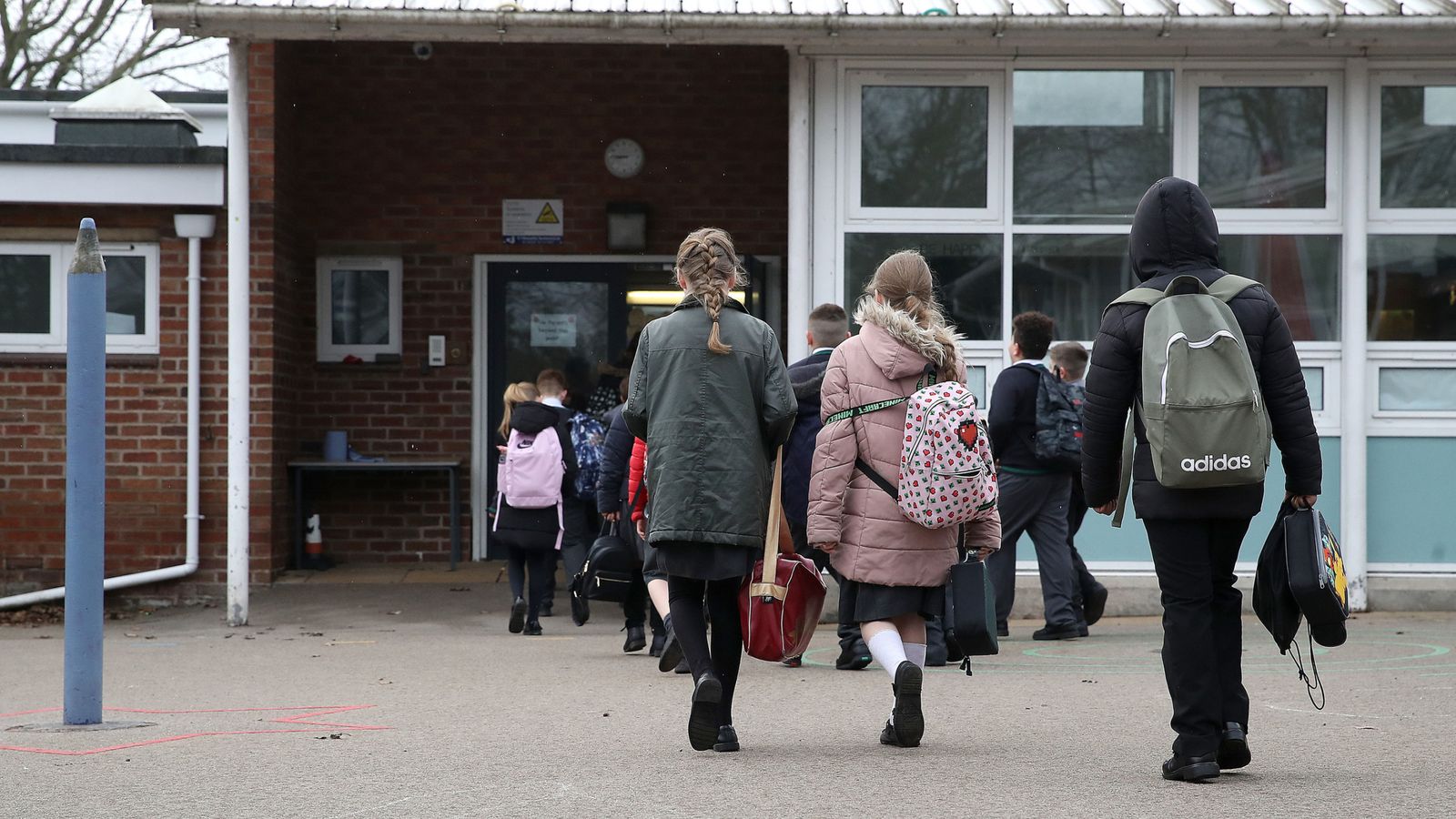The government’s efforts to help school pupils catch up from lost learning during the COVID pandemic are “feeble” when compared to other countries, a former adviser has said.
Sir Kevan Collins, who recently quit as Prime Minister Boris Johnson’s catch-up tsar amid a row over funding, told MPs on Tuesday that the “biggest impact” of the coronavirus crisis will be on disadvantaged children.
Giving evidence to the House of Commons’ education committee, Sir Kevan confirmed he had made proposals worth £15bn to help schools recover from the pandemic.
He quit his government role earlier this month after ministers unveiled a package worth £1.4bn, of which most was focused on tutoring courses for disadvantaged children.
Chancellor Rishi Sunak was reported to have pushed back against authorising Sir Kevan’s proposals for a larger package of education recovery measures.
Speaking to MPs on Tuesday, Sir Kevan said he was “disappointed” to resign and that quitting was a “very, very difficult decision”.
“I did consider all the options but the quantum was so different from the amount that I thought we needed – to deliver the exam question I was asked – that it was impossible for me not to step back at that point,” he said.
Sir Kevan added the £1.4bn package “just wasn’t enough to deliver the kind of recovery we need”.
He said a “massive national effort” was required to help pupils overcome lost learning since March last year.
“Our country has responded in a way which compared to some others is frankly a bit feeble,” Sir Kevan told the committee.
“This scale of shock – losing on average 115 days of face-to-face learning – requires a massive national effort to recover.
“I worry that it is not a bit of tutoring in the corner, it is actually a fundamental approach the school needs to take.
“That is why I was keen to see a whole school effort, around time, around teaching, around tutoring, and not a narrow kind of auxiliary attention to one particular activity that can get put to a teaching assistant.”
Subscribe to the All Out Politics podcast on Apple Podcasts, Google Podcasts, Spotify, Spreaker
Sir Kevan revealed he and the Department for Education had estimated the hit to the economy of children’s lost learning as £100bn.
He said, among his catch-up proposals, were trials of longer school days – of an extra half an hour – in the next academic year.
“We have no legislation about the length of the school day in England – schools are able to determine that locally,” he said.
Sir Kevan added he wanted to raise every school to the average school day length of 6.5 hours, which would have meant 10,000 schools having to increase the length of their school day.
He said it was “reassuring” to have heard senior ministers talk about more money being provided to schools in the coming months.
“I hear that sort of stuff in completely good faith,” Sir Kevan told MPs.
“I’m a total optimist in this, we have to because the arguments both economically and educationally are overwhelming.
“So of course we’ll have to do more because we cannot blight a generation of children.”
Sir Kevan suggested the government’s wish for education funding to fit in with its spending review cycle was to blame for a failure to stump up more cash immediately.
“I’m more obsessed with the education cycle and we need to start from September,” he said.
“I wanted to hit the ground running this September because children cannot afford another year.”
Sir Kevan said it would be “unacceptable” for another academic year to be lost without further catch-up measures.
“What’s critical about the spending review is the money must get into the schools as soon as possible,” he said.
Asked about Sir Kevan’s description of the £1.4bn education recovery fund being “a bit feeble”, the prime minister’s official spokesman said: “I think the public would accept that £1.4bn is a significant sum of money and comes on top of an additional £1.7bn.
“Since coming to office, the prime minister has committed an additional investment in education totalling over £17bn.
“But as has been said before, we will obviously keep the situation in our schools under review and consider what further steps may be necessary.”


